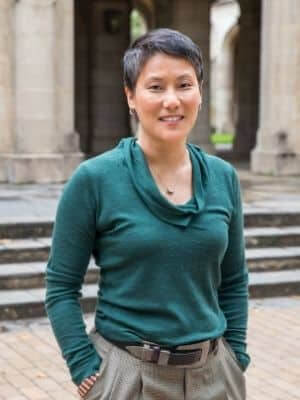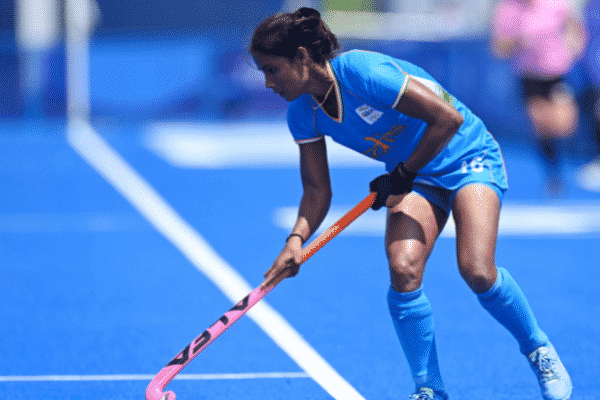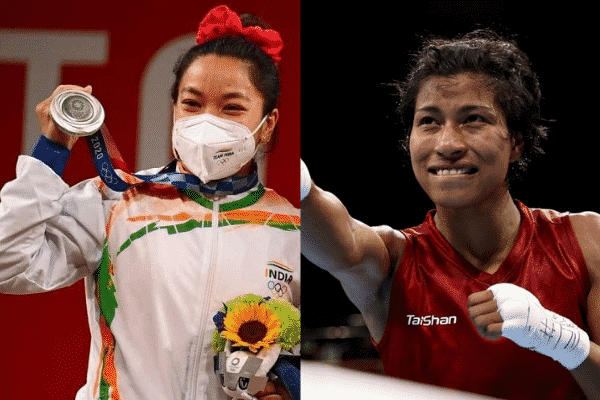Why is it that when athletes from Northeast India win medals, India celebrates them, but once the sporting events pass and the fervour dies down, the community goes back to being invisible?
At this year’s Tokyo Olympics, ace lifter and world number three, Manipur’s Saikhom Mirabai Chanu won a silver medal in women’s weighlifting, while Assam’s Lovlina Borgohain became the third Indian boxer after Mary Kom and Vijender Singh to win an Olympic medal in boxing.
Both have received much public acclaim in recent days.
However, for members of Northeast Indian community, such fanfare only leaves a sour taste in the mouth.
“They only want to acknowledge us when it’s comfortable for them,” 24-year-old Tendel Phintso, born and bred in Mumbai, told Indian Link.
“I’m used to it, but other Northeasterners who didn’t grow up here [Mumbai] hate it because they’re not used to being treated like second-class citizens,” she said. “Even when they make movies about our community, we are erased.”

Just think back to the time when Bollywood casted Priyanka Chopra-Jonas in Mary Kom and Aamir Khan as Phunsukh Wangdu in 3 Idiots. These characters were based on real people, from Manipur and Ladakh respectively, but filmmakers still misrepresented the community by using other actors and profited from their stories (3 Idiots made $90 million USD, highest box office film gross for a Bollywood film, in 2009).
“The government neglects Northeastern states. In terms of education, it is completely removed,” Tendel stated. “And so when Northeasterners are forced to seek education outside of Northeast India, they are frequently discriminated against and become targets of racial slurs.”
“In school, we never study about what happened in the Northeast during India’s independence in any of our textbooks. There is no representation at all. Even the media channels ignore us,” Tendel lamented.
Most Indians remain unaware of the issues faced by the eight Northeastern states because mainstream media channels rarely show news of un-uniform land laws, differentiating citizenship rights, or violence perpetrated under the Armed Forces Special Powers Act, and other local issues when broadcasting nationally.
If you’re from Northeast India, you can become an Indian ONLY when you win a medal for the country.
Otherwise we are known as “chinky” “Chinese” “Nepali” or a new addition “corona”.
India is not just infested with casteism but racism too.
Speaking from my experience. #Hypocrites— Ankita Konwar (@5Earthy) July 27, 2021
Bollywood fitness trainer Ankita Konwar, from Assam, tweeted recently, “If you’re from Northeast India, you become an Indian ONLY when you win a medal for the country. Otherwise we are known as ‘chinky’, ‘Chinese’, ‘Nepali’ or a new addition, ‘corona’”.
Australia-based anthropologist, author, and Naga woman Dr Dolly Kikon concurred. “‘Chinky girl’, is a common slur northeastern girls encounter in Delhi, the capital of India. They are harassed simply for looking different. When they go to the police to report it, they refuse to lodge complaints, and ask them if they’re ‘dancers’.”

A Senior Lecturer in Anthropology and Development studies at Melbourne University, she pointed out how the Olympic victories display “a momentary fetishised success”.
Dr Kikon thinks this is especially true since most of these Indian athletes come from rural areas and have had to overcome class, caste and gender barriers to make their country proud, and yet, they don’t receive the proper training, nurturing, safety and job security they so deserve.
“Stop this celebration from getting to your head, if you’re not going to look out for them at home,” Dr Kikon said.
“Look at the kind of sports these women [Chanu and Borgohain] are excelling in – weightlifting and boxing! These athletes are vocal and determined to challenge patriarchal structures in India. On one hand the country rewards them for it, and on the other, they are harassed in the streets.”

This harmful and discriminatory ‘acknowledging-when-convenient’ attitude also extends to other minority athletes in India.
Verbal abuse of hockey player Vandana Katariya’s family made headlines after India’s semifinal loss, when it was reported that upper caste men sarcastically burst crackers outside her house and claimed the team lost because it had ‘too many Dalits’.
READ ALSO: #DalitLivesMatter: the caste system still persists
Acknowledgment and being anti-racist
Moving forward, how can Indians acknowledge this misrepresentation and be active allies to our Northeastern family?
“Firstly, the erasure needs to end,” Tendel Phintso remarked. “Erasure from history books, education systems, news, media and especially Bollywood movies.”
While India has national commissions dedicated to Scheduled Tribes and Castes, without adequate representation in government and media it is unlikely that the communities will see any form of resolution.
“I think it’s a long journey,” Dr Kikon mused. “We have to think together about issues of sexual crimes, caste, and racism through renewed lenses of justice and equality. But right now, we need regulations and policies on the ground to safeguard the community.”
Tired of the hypocrisy and erasure, Tendel Phintso shares what non-Northeasterners can do at the individual level to be an ally.
“People need to stop talking over Northeastern voices and listen when the minority are speaking,” she said. “Many people think because they’re ‘woke’ about discrimination against us, they have the right to talk over us and discredit our experiences. They like to gatekeep what is considered ‘racist’ and what is not, without acknowledging the role they themselves play to perpetuate these cycles.”
She added, “Spread awareness about the community. Most recently there’s been a string of hate-crimes against Northeasterners because of COVID-19. Question your own biases and be an ally by stopping others from engaging in discrimination.”
READ ALSO: Black Lives Matter ignored at IPL: WI’s Jason Holder
Note from the author – The article does not intend to club together different states or place an entire community under one umbrella. However, it employs the terms ‘northeast India’ and ‘Northeasterners’ to merely allow discussion around major issues these communities face while acknowledging their rich, diverse, and individual cultures.
Link up with us!
Indian Link News website: Save our website as a bookmark
Indian Link E-Newsletter: Subscribe to our weekly e-newsletter
Indian Link Newspaper: Click here to read our e-paper
Indian Link app: Download our app from Apple’s App Store or Google Play and subscribe to the alerts
Facebook: facebook.com/IndianLinkAustralia
Twitter: @indian_link
Instagram: @indianlink
LinkedIn: linkedin.com/IndianLinkMediaGroup




